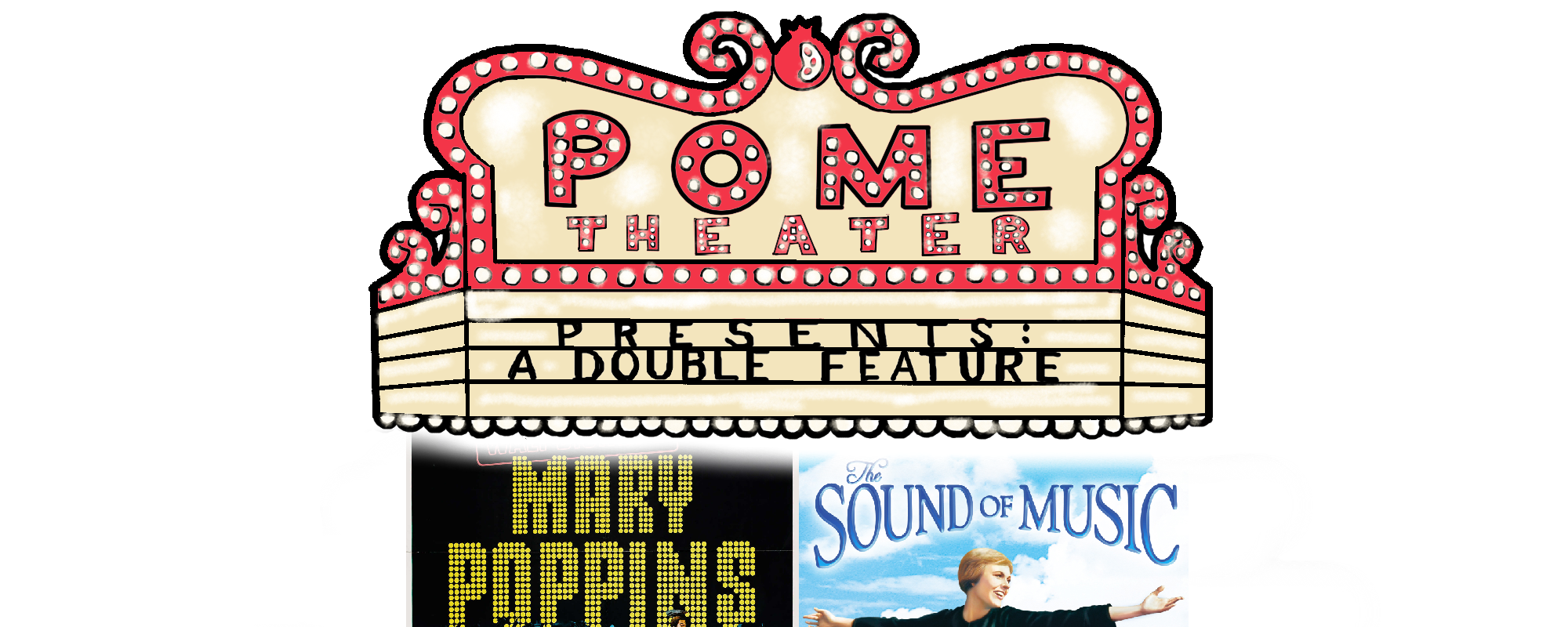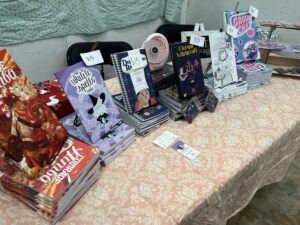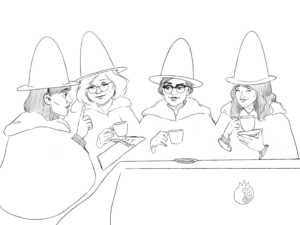There is technically one more month of spring, and with that in mind, I ask you to listen to the hills (hint: they’re alive with a Sound). The birds are singing, the flowers are blooming, and maybe it’s time for a little spring cleaning — so throw open those windows, sweep out those chimneys and sit yourself down for this, your reward.
This Week:
 Mary Poppins — The Sound of Music
Mary Poppins — The Sound of Music
Mary Poppins
So, we’re starting with Mary Poppins, and I’ll tell you right now that we’re pretty much just going to pretend that Dick Van Dyke isn’t there (That’s right! No painfully bad Cockney accent! No forced flirtation! No out-of-tune accordion! — but, obviously, we’ll keep Chim Chim Cher-ee and those cute little penguin butlers).
Mary Poppins is not about Dick Van Dyke (no matter what Disney promotional materials might have you believe); it’s about the kids and their father.
For those of you who may have missed this childhood phenomenon, Mary Poppins is a Witch who teaches kids how to Clean Their Rooms and Take Their Medicine and Topple the Capitalist System by inciting Bank Runs.
She descends from the heavens in response to a call in the children’s hearts to be treated like tiny humans instead of tiny monsters (but also in response to a “help wanted” ad for a nanny).
The bulk of this movie is just Disney animators showing off, but towards the end, Mary tricks the father (AKA the most unrealistically grumpy person in the history of cinema) into bringing his children to visit the bank where he works/actually spending time with them — and this ultimately leads to his transformation into a passably caring father and semi-decent human being.
(Note on Mary Poppins: the mother of these children is depicted as being too wrapped up in her work with the suffragettes to look after her children; at the end of the movie/with the departure of Mary, she gives her suffragette sash to her children so they can use it as the tail of their kite; ALSO, throughout the Whole Movie, she never speaks directly with Mary. It’s all a bit heavy-handed. Best to pretend that’s not there either.)
The Sound of Music
Moving on to The Sound of Music! Based on a True Story! and thus full of blah blah historical significance. You know what else it’s full of? Young Christopher Plummer’s face.
Bam
Again, for those of you who missed this one growing up: The Sound of Music is about a nun-to-be whose abbess sends her out to be a governess to the seven million children of this hot widower (See Above: Young Christopher Plummer’s Face). Also there’s stuff about Nazis, I guess.
He’s a captain in the navy and, after the death of his wife, he approaches his fleet of children the only way he knows how: with militant efficiency. There is no fun or affection to be found in his life — there is no joy in his soul, no song in his heart.
This emotional detachment is, obviously, a really terrible parenting technique, and results in a string of governesses who fall victim to the children’s attention-seeking pranks. Until Maria! Kind, patient Maria. Maria, who is an unsolvable problem — a cloud, unable to be pinned down.
Anyway, Maria teaches the kids to sing and their song melts his heart.
He goes from this:
(I’ll call you whatever you want)
To this:
(He’s so Cute; Look at him!)
All thanks to Maria and her kindness and her patience. And then, y’know, Nazis annex Austria, blah blah, daring escape, blah blah, Very Cool Nuns.
The Sound of Music, like Mary Poppins, is about kids who are perceived to be troublesome and/or vindictive, but who really just need a little attention paid to them. These movies are about dads who are a little too wrapped up in capitalism or protecting their countries from Nazi invaders to pay that attention.
Enter, then, Julie Andrews: here to teach Mr. Grumps and Captain Von Hotdad that they have to actually listen to their children — that children (being Tiny People) have People Thoughts and People Emotions, and they ought to be treated like People.








